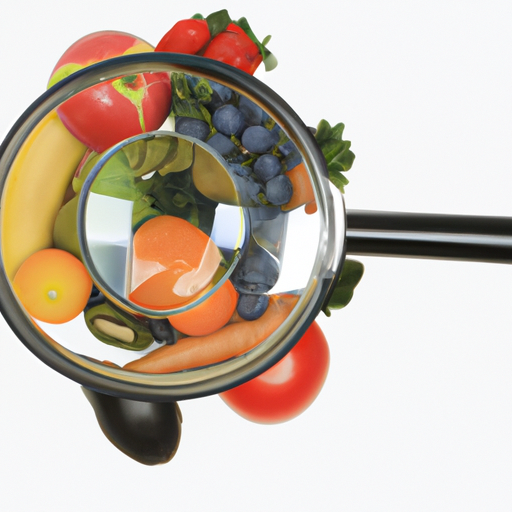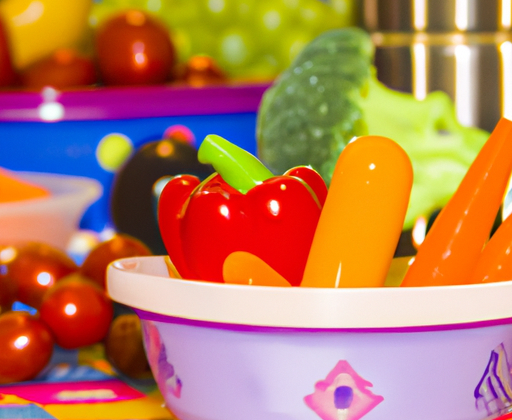Food Allergies: The Ultimate Guide to Safe Storage
Hey there, fellow foodies! As someone with severe food allergies, I know firsthand how crucial it is to ensure that my meals are stored properly. Food allergies are immune-system responses to specific substances, known as allergens, that are typically harmless to others. However, for people like me, consuming even a small amount of these allergens can lead to severe reactions, including life-threatening anaphylaxis.
Luckily, there are ways to minimize the risk of allergic reactions by taking extra precautions during food storage. In this guide, I’ll be sharing expert tips and uncommon advice to ensure that you and your loved ones stay safe and healthy.
Let’s dive in and explore the various methods of food storage that are safe for those with food allergies. Trust me, taking these extra steps will be worth it in the end—there’s nothing more important than your health!
Identify Allergens: Don’t Take Risks
Hey there, food lovers! As someone who suffers from severe food allergies, I know how devastating a reaction can be. That’s why it’s essential to identify allergens carefully. You don’t want to take any risks with your health, right? Here are some tips and tricks that have helped me stay safe and healthy!
Reviewing Ingredient Labels
Whenever I want to try a new dish or buy something from the grocery store, I always make sure to read the ingredient labels. This helps me identify any potential allergens that might be present in the food or products. Don’t forget to check the expiration dates too! Sometimes, expired food can cause allergic reactions.

There are eight common allergens: milk, eggs, peanuts, tree nuts, soy, wheat, fish, and shellfish. Avoiding these allergens can be challenging, but with a little bit of patience and practice, it’ll soon become second nature. I recommend carrying an EpiPen at all times, just in case you come into contact with one of these allergens unexpectedly.
Conclusion
Overall, identifying allergens is a crucial step to staying safe and healthy. Don’t be afraid to speak up and ask questions about the food you’re eating. It’s better to be safe than sorry!
The Refrigeration Game: Keeping Allergens at Bay
When it comes to storing food for someone with food allergies, proper refrigeration is key. I have learned the hard way that just because a food is labeled as “allergen-free” doesn’t mean it isn’t at risk for cross-contamination. Here are some tips I’ve picked up on how to keep allergens at bay:
Placing Food in Air-tight Containers
When storing food in the refrigerator, it is important to place everything in air-tight containers. This helps prevent allergens from contaminating the food. For example, if you have a child with a peanut allergy and you store peanut butter in the fridge, it’s best to place it in a sealed container. This helps to prevent any peanut particles from floating around and getting on other food.
Storing Raw and Cooked Foods Separately
An important rule of thumb is to always store raw and cooked foods separately in the refrigerator. This helps to prevent any cross-contamination between the two. If you have a family member with a food allergy, it’s best to keep their food separate from everyone else’s. For example, if you have a child with a dairy allergy and you’re cooking chicken, make sure to cook their portion of the chicken separately without any dairy products.
The bottom line is that proper food storage can make all the difference when it comes to keeping someone with food allergies safe and healthy. Don’t take any chances with allergen contamination. Take the extra time and care to properly refrigerate your food. Your family will thank you for it!
Freezing: Keeping My Allergic Loved One Safe
As someone with a loved one who has food allergies, I know how important it is to take every precaution necessary to ensure their safety. That’s why I take freezing seriously as a food storage method. Here are some tips that work for me:
a. Utilizing separate freezers for allergic individuals
Having a separate freezer for my loved one’s food is crucial for me. It helps me avoid cross-contamination by separating their food from other foods in the house that may contain allergens. Keeping their food in a separate freezer helps me maintain control over what they consume and ensure it’s safe for them.
b. Keeping food frozen at the proper temperature
I make sure to keep the freezer at the appropriate temperature which ideally should be 0°F (-18°C) or below. This helps in keeping the food safe and prevents the growth of microorganisms that can cause spoilage and foodborne illnesses. I also avoid opening the freezer frequently as this can affect the temperature inside.
Overall, taking such steps to ensure the safety of our loved ones with allergies can seem like a daunting task, but with proper planning and organization, we can create safe spaces where our loved ones can eat without fear. We can keep our loved ones healthy and happy through a few simple steps!
Pantry Storage: Keep your food allergen-free
When it comes to food allergies, one of the most important things to keep in mind is that cross-contamination can occur in any setting. This is why it is important to have a safe storage plan for your pantry staples to avoid any allergens getting into your food without your knowledge. Here are some tips for effective pantry storage:
Labeling foods with allergens
It may seem like common sense, but labeling foods with allergens is important for anyone who suffers from food allergies. This can be as simple as using a marker to write the allergen on the packaging, or as detailed as creating a spreadsheet of all the foods in your pantry with their corresponding allergens. By clearly labeling your foods, you can avoid any accidental consumption of an allergen.
Cleaning pantry regularly
It is important to regularly clean your pantry to prevent the buildup of dust, dirt, and food residue that can harbor allergens. This means wiping down all surfaces, vacuuming or sweeping the floor, and regularly checking for expired items or spills. A clean pantry is a safe pantry!
Organizing foods by allergen
If you have multiple people in your household with different food allergies, consider using different shelves or containers for each allergen. This will make it easier to keep track of which foods are safe for each person, and reduce the risk of cross-contamination.
With these simple tips, you can ensure that your pantry is a safe space for those with food allergies. Remember to always be extra cautious and take the necessary steps to protect yourself and your loved ones from accidental exposure to allergens.
My Final Thoughts on Storing Food Safely for Allergy Sufferers
Well folks, I hope you’ve learned a thing or two from my blog about storing food for those with allergies. It’s no joke when it comes to keeping our loved ones safe from life-threatening reactions. Here are a few takeaways to keep in mind when storing food:
First off, it’s important to always identify the allergens in the foods we buy and consume. This can be done by reading ingredient labels and researching common allergens. Second, when it comes to refrigeration, make sure your food is stored in air-tight containers and that raw and cooked foods are kept separately to avoid cross-contamination.
Freezing food is also a great way to store meals for longer periods of time and can be especially helpful for those with allergies. Just make sure your freezer is at the proper temperature and that allergen-free meals are clearly labeled. Lastly, keeping your pantry clean and organized can go a long way in avoiding mix-ups and reactions.
Overall, staying cautious and informed is key when storing food for those with allergies. Don’t be afraid to ask questions and seek out expert advice. The safety and well-being of our loved ones should not be taken lightly.

